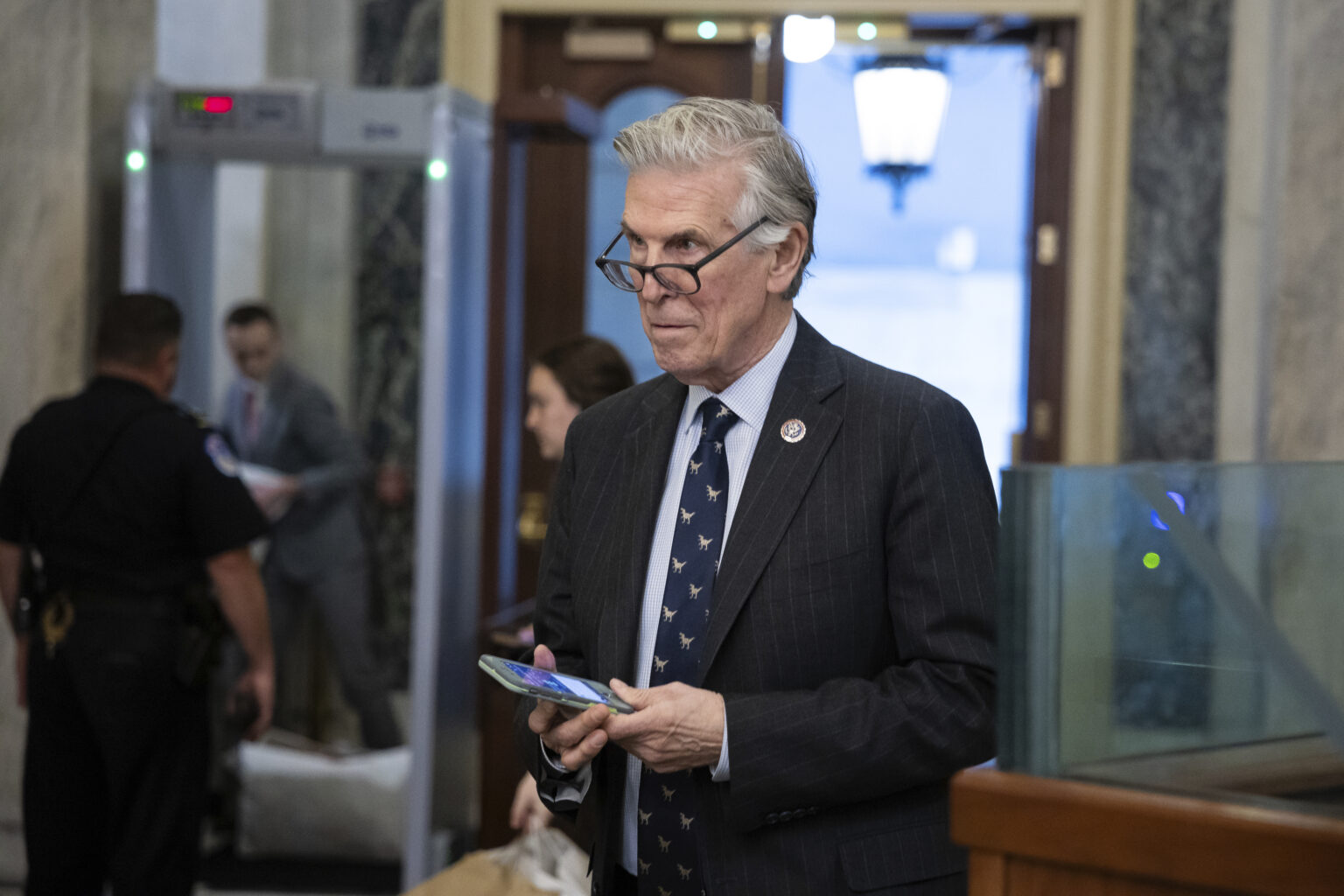President Donald Trump’s decision to fire thousands of federal workers this month was meant to pressure Democrats into quickly ending the government shutdown. Instead, it could have the opposite effect.
As the shutdown enters its 15th day, many Democrats say they want a commitment that employees subjected to reductions-in-force, or RIFs, will be rehired before they agree to reopen the government — even as courts independently act to curb the firings.
“It’d be pretty unconscionable to open it up and still have to put up with those thousands and thousands of firings,” said Rep. Don Beyer (D-Va.), who represents a fed-heavy district bordering Washington.
Negotiating the fates of those workers could further complicate the path out of the shutdown, with Democrats already demanding the extension of key expiring health insurance subsidies and an end to Trump’s moves to cancel congressionally approved spending.
Beyer said he would leave it to the top Hill Democrats — House Minority Leader Hakeem Jeffries and Senate Minority Leader Chuck Schumer — to figure out whether a U-turn needs to be written into legislation. “But it definitely should be fully reversed,” he said.
Federal workers and their advocates won an early victory Wednesday when a California-based federal judge halted some of the layoffs on a temporary basis. The White House budget office has said in court papers some 4,000 employees have already been subject to RIFs, and budget director Russ Vought said in an interview with “The Charlie Kirk Show” Wednesday the layoffs could ultimately go “north of 10,000.”
It’s possible that the layoffs might be overturned without congressional intervention as lawsuits stack up. But some Trump administration mass firings undertaken before the shutdown were initially blocked by federal judges only to be ultimately found valid and allowed to remain in effect.
Jeffries has denounced the firings as an intimidation tactic and said they “will be reversed, either congressionally or by the courts.” Schumer has called on the White House to undo the latest firings but has not said whether forcing a backtrack should get tacked on to Democrats’ demand list.
“The administration should reverse every single firing from last week and should stop playing politics with people’s livelihoods and their lives,” he said in a Wednesday floor speech.
Schumer, in particular, has sought to maintain flexibility in navigating a path out of the shutdown. Unlike some Democrats — including Jeffries — he has not demanded an extension of the expiring health care subsidies as a prerequisite to reopen the government, only that the parties negotiate on a bipartisan product. Adding a reversal of the Trump firings to the list could make an off-ramp even harder to find than it already is.
Other Democrats, including some who represent parts of the Washington area, said they are confident the court challenges would ultimately prevail. Federal worker unions filed the initial lawsuits following threats from Vought that preceded the start of the actual government shutdown — arguing, among other things, that the act of firing workers is a nonessential function that cannot be performed during a lapse in federal funding.
Rep. Steny Hoyer (D-Md.) said negotiating the cancellation of the RIFs “certainly should be on the table” but added, “I think they’re going to be reversed” by the courts. Added Rep. Glenn Ivey (D-Md.), “To the extent those are illegal anyway, they really don’t need to be on the table. But I think we’ll have to see how that plays out.”
Trump said Tuesday more workforce cuts could come as soon as Friday if the government isn’t open by then.
“We’re closing up programs that are Democrat programs that we were opposed to,” he said. “And they’re never going to come back in many cases.”
Many Democrats have argued Trump would have pursued the sweeping cuts whether the government was open or not. The president has already slashed 200,000 federal jobs through the Department of Government Efficiency, according to a Partnership for Public Service estimate.
That has driven a larger desire to not only fight the Trump administration but to curtail its power to dismantle programs that have been authorized and funded by Congress.
“I think not just RIF removals, but the treatment of federal workers should be part of these negotiations,” Rep. Suhas Subramanyam (D-Va.) said. “They have nothing to do with the shutdown though, and they’re using this as an excuse to fire people that they were already going to fire.”
Asked about undoing the RIFs, Sen. Tim Kaine (D-Va.) said “we might reverse some of them as part of the appropriations process.” But he added that Democrats cannot agree to any spending deal so long as Trump can continue cutting federal workers against congressional will: “Getting to stop the unilateral action is definitely something that I’m looking for.
Kaine and other Senate Democrats have gotten some Republican backup. Appropriations Chair Susan Collins (R-Maine) spoke out against the administration’s first round of permanent layoffs last week. And Sen. Lisa Murkowski (R-Alaska) signed onto a letter with dozens of Democrats demanding that the administration guarantee it will give back pay to furloughed workers in keeping with a requirement Trump signed into law in 2019.
But conservative Republicans continue championing the mass layoffs, saying they are proof that the federal government is too big and can easily be pared back.
“The president is doing what he needs to do,” Rep. Andy Harris (R-Md.) said during a telephone town hall Tuesday. “He said that what we’re going to do is start laying off federal workers — not furloughing them, but laying them off — delivering on the government efficiency promises that he made when he ran for office.”
Calen Razor and Jordain Carney contributed to this report.
Read the full article here


